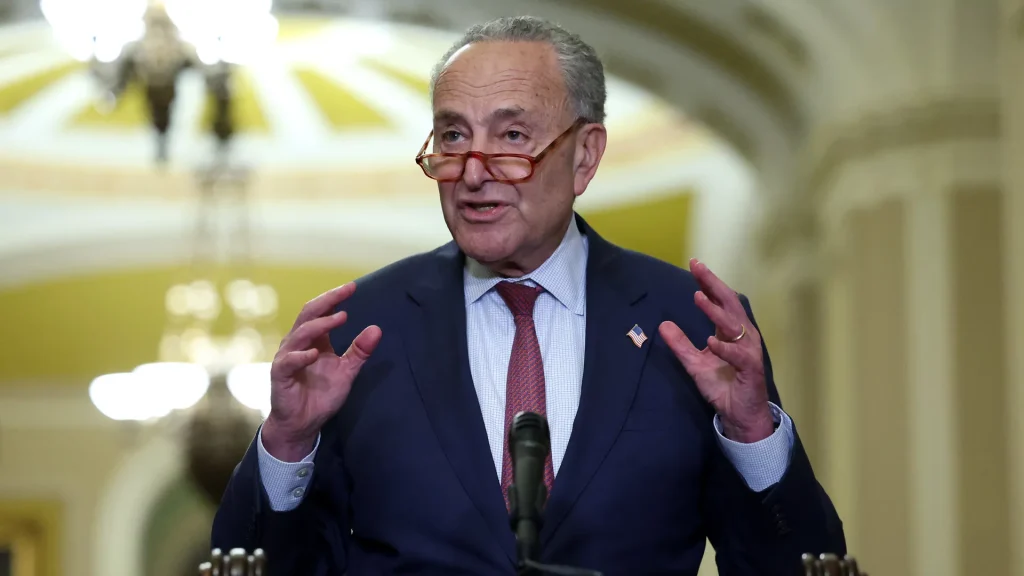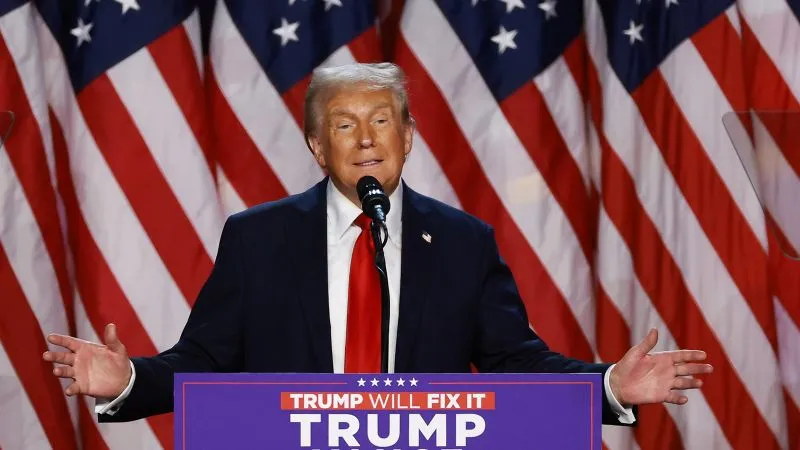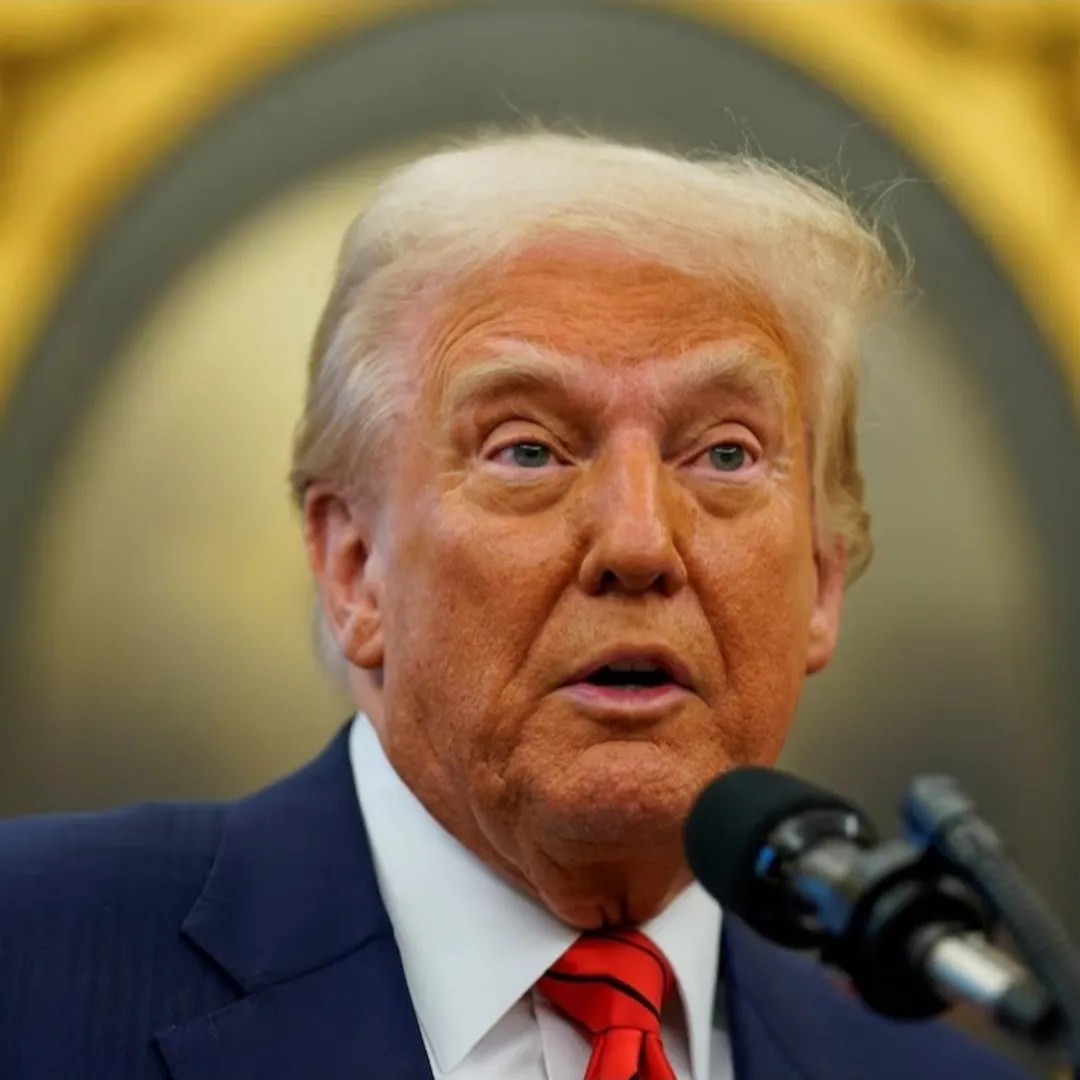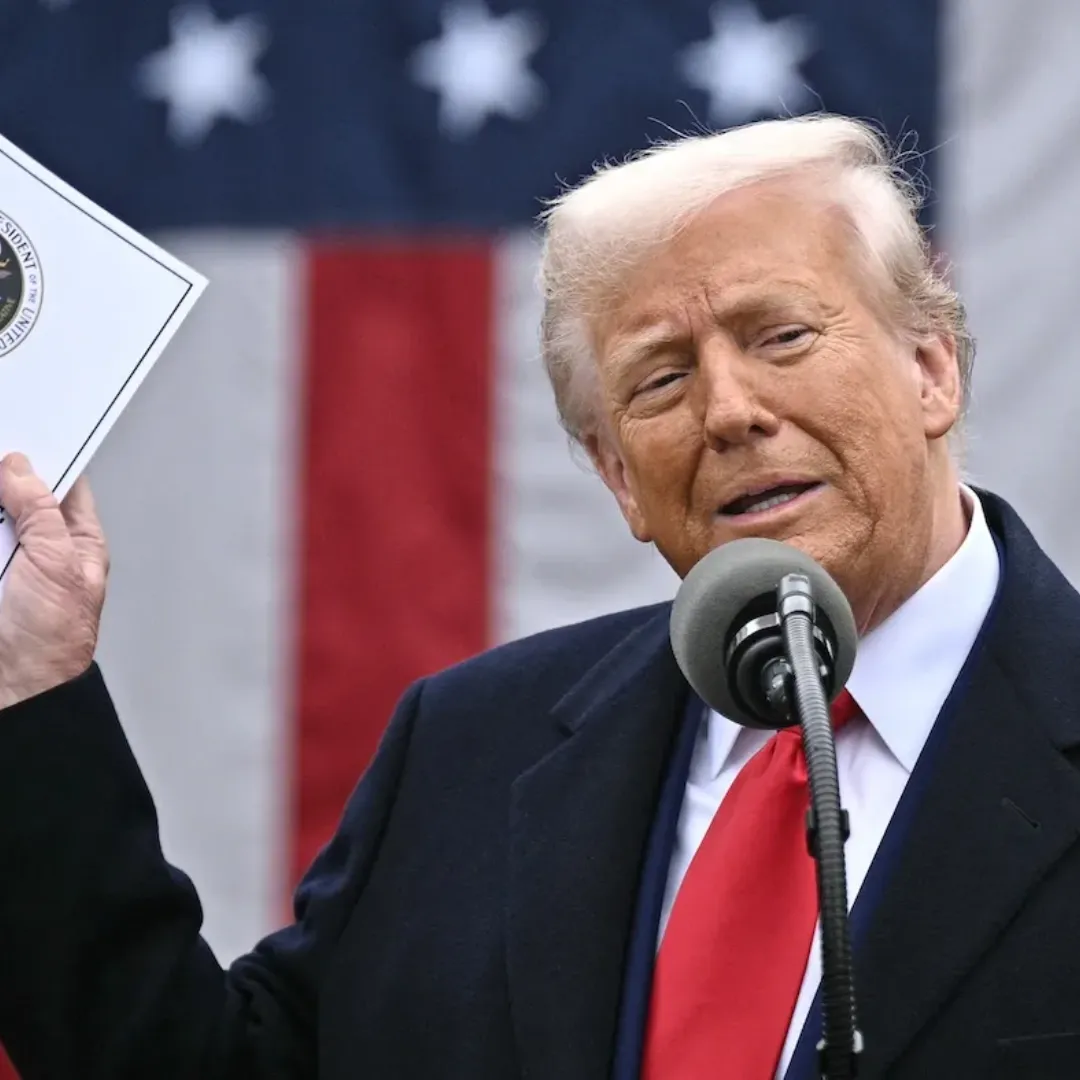
Senate Democratic Leader Chuck Schumer has taken decisive action to prevent two of former President Donald Trump’s nominees from assuming high-profile positions in the federal justice system, signaling a renewed battle over political influence in the legal sphere.
By invoking a longstanding Senate tradition known as the blue slip process, Schumer has effectively halted the appointment of Jay Clayton and Joseph Nocella to serve as U.S. attorneys for the Southern and Eastern Districts of New York.
Schumer announced his decision in a statement Wednesday, citing concerns about what he described as the politicization of the Department of Justice under Trump’s leadership. “Donald Trump has made clear he has no fidelity to the law and intends to use the Justice Department, the U.S. Attorney offices and law enforcement as weapons to go after his perceived enemies,” Schumer said.
“Such blatant and depraved political motivations are deeply corrosive to the rule of law and leaves me deeply skeptical of the Donald Trump’s intentions for these important positions.”
Schumer’s refusal to return the blue slips for the nominations puts the confirmation of both Clayton and Nocella in serious jeopardy. The Senate blue slip process, a tradition rooted in senatorial courtesy, grants home-state senators the power to approve or reject nominees for federal judicial and prosecutorial positions within their state.
While not an official rule, the process is often respected by the Senate Judiciary Committee, particularly for district court and U.S. attorney appointments.
The Southern District of New York, where Clayton was nominated to serve, is widely regarded as one of the most prestigious and powerful federal prosecutor offices in the nation. It has overseen a range of high-profile cases involving corporate fraud, political corruption, and organized crime.
Clayton, a former chair of the Securities and Exchange Commission, has a strong background in corporate law but lacks prosecutorial experience, which has raised eyebrows among legal experts and politicians alike.
Before leading the SEC from 2017 to 2020, Clayton worked as a mergers and acquisitions specialist at the New York law firm Sullivan & Cromwell. Despite his prominence in the financial legal community, critics have questioned whether he is equipped to manage a team of federal prosecutors tasked with complex criminal investigations.
Nocella, Trump’s nominee for the Eastern District of New York, comes from a different background. A Long Island judge with ties to the Nassau County Republican establishment, he previously served as an assistant U.S. attorney in the same district during the early 1990s.
The Eastern District is another high-powered federal office that has handled major prosecutions, including cases involving organized crime syndicates such as the Bonanno crime family and public figures like R&B singer R. Kelly.
Despite his prior experience in the office, Nocella’s close alignment with the Republican Party has led Schumer to question the impartiality of his potential leadership.
In rejecting both nominees, Schumer made it clear that his decision was not personal but political, grounded in concerns over the broader direction of the Justice Department under Trump’s influence.
“If it were just about qualifications, we could have a discussion,” Schumer said. “But this is about intention. It’s about the intent to politicize and weaponize our legal system. That is unacceptable.”
The question now shifts to Senate Judiciary Committee Chair Chuck Grassley, a Republican from Iowa who will decide whether to honor Schumer’s blue slip objections or press forward with the confirmation process regardless.
Grassley has a complicated history with the blue slip tradition. While he has previously upheld the process for district court and U.S. attorney appointments, he has also made exceptions, particularly during Trump’s first term.
When asked recently if he would continue to respect the blue slip practice for federal district nominees, Grassley replied, “The answer is yes. If they are from the state the nomination comes from.”
That statement suggests Schumer’s objection could still carry weight, although political pressure from Trump and his allies could challenge the tradition.
For now, the future of Clayton and Nocella’s nominations remains uncertain. If Grassley honors the blue slip system, the two nominees may never receive a hearing before the full Senate.
On the other hand, if the tradition is bypassed or ignored, it could spark a new round of partisan conflict over the rules and norms that govern Senate confirmations.
The blue slip process has become a flashpoint in the larger debate over how federal judicial and prosecutorial appointments are handled.
For much of the 20th century, the practice was viewed as a routine gesture of senatorial courtesy, giving home-state lawmakers a say in who would serve in federal courts and U.S. attorney offices. However, in recent years, the process has been increasingly politicized.
During the early 2000s, then-Senate Judiciary Committee Chair Orrin Hatch moved forward with several nominees who did not have returned blue slips. More recently, under Grassley’s leadership beginning in 2015, the Senate allowed Trump’s appellate court nominees to advance even when Democratic senators from their home states objected.
However, Grassley has generally upheld the blue slip requirement for district court and U.S. attorney nominees, maintaining that senators should have input on appointments within their states.

Schumer’s stance also reflects broader tensions over the legacy of Trump’s presidency and the role he continues to play in Republican politics. By rejecting Trump’s nominees, Schumer is not just exercising a procedural privilege — he is drawing a line in the sand about the importance of institutional integrity.
“We cannot allow our most important legal offices to become extensions of a political agenda,” Schumer said. “These appointments matter. The people of New York deserve leadership that is driven by justice, not loyalty to a former president.”
The stakes are particularly high in New York, where both the Southern and Eastern Districts wield significant influence. From Wall Street financial crimes to major terrorism cases, these offices operate at the forefront of federal law enforcement.
The people who lead them must not only possess legal expertise but also a reputation for independence and impartiality.
Legal scholars have pointed out that appointing someone without prosecutorial experience, like Clayton, to lead the Southern District could send a troubling message about the priorities of federal law enforcement.
Similarly, the nomination of a politically connected figure like Nocella could raise questions about whether key cases will be influenced by partisan interests.
While Trump and his allies argue that the nominations reflect a desire to reform and modernize the justice system, critics remain skeptical. Many view the appointments as part of a broader strategy to insert loyalists into powerful positions across the federal government.
As the situation develops, it remains to be seen whether Schumer’s objection will hold or if Republicans will seek a way around it. The answer could shape the political landscape leading into the next election cycle, particularly if Trump remains an active force in the Republican Party.

For now, both Clayton and Nocella await a decision that will determine whether they move forward in the confirmation process or are forced to step aside. Schumer has made his position clear, and unless there is a dramatic change in precedent, the nominations may be dead on arrival.
What happens next will be a test not only of Senate procedure but of the political will on both sides of the aisle to uphold or break long-standing traditions in pursuit of their goals.





